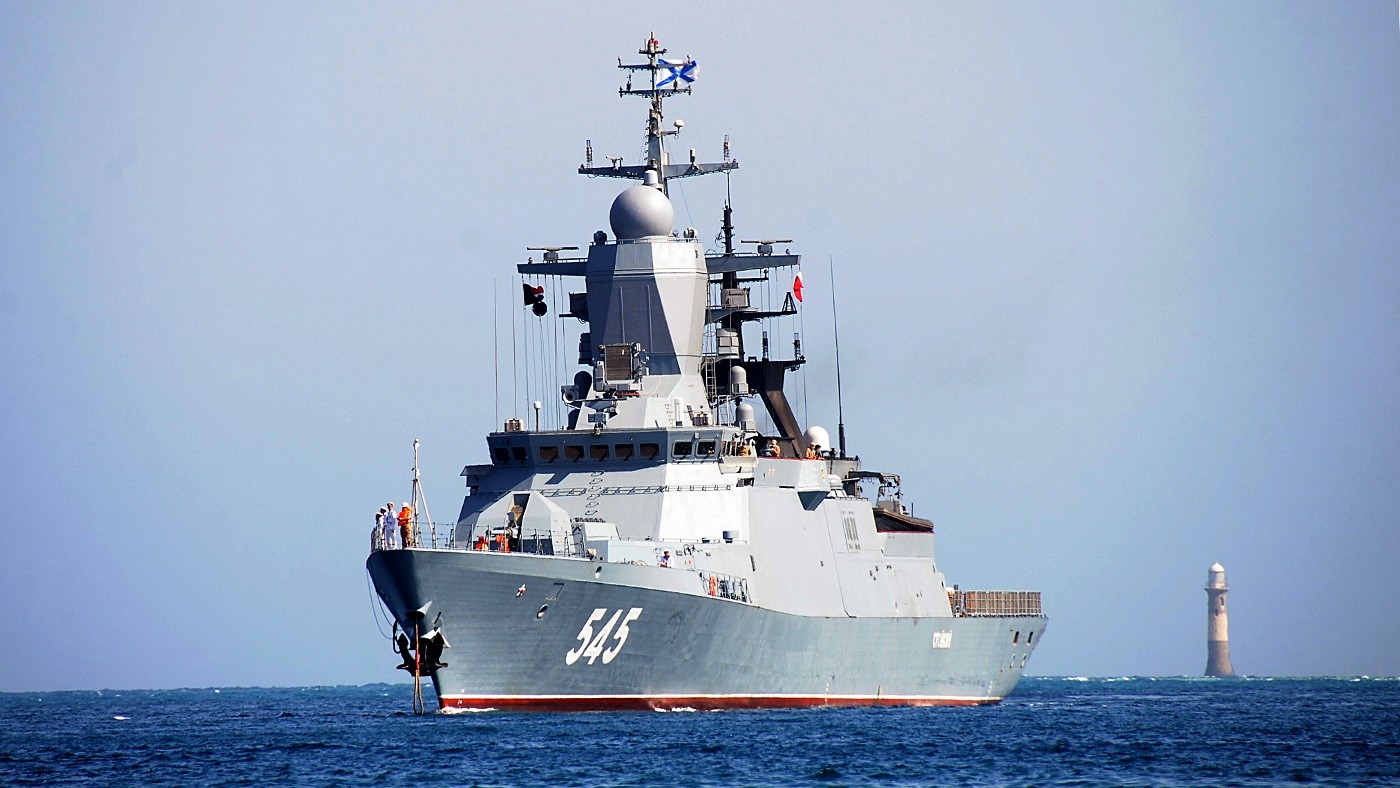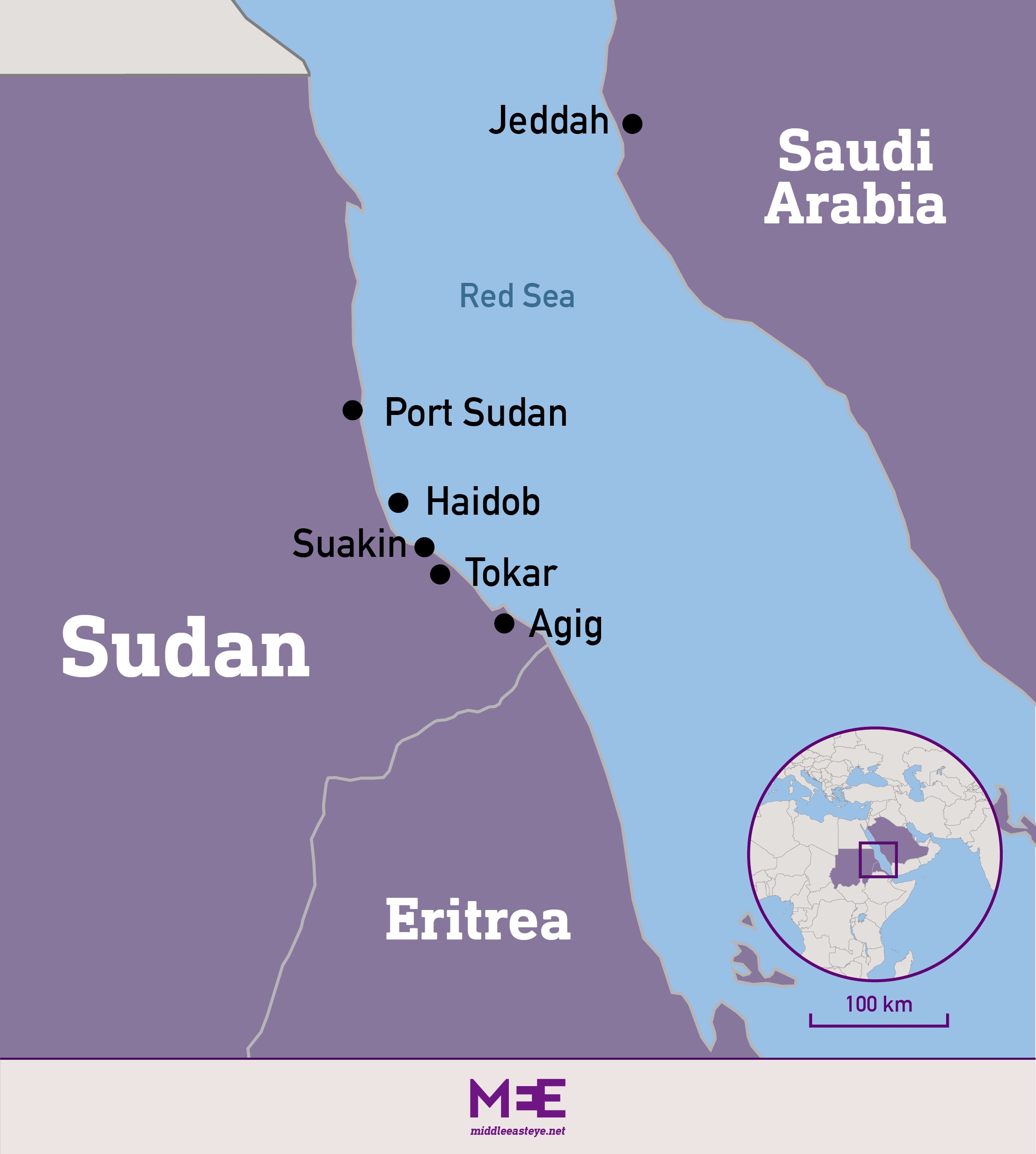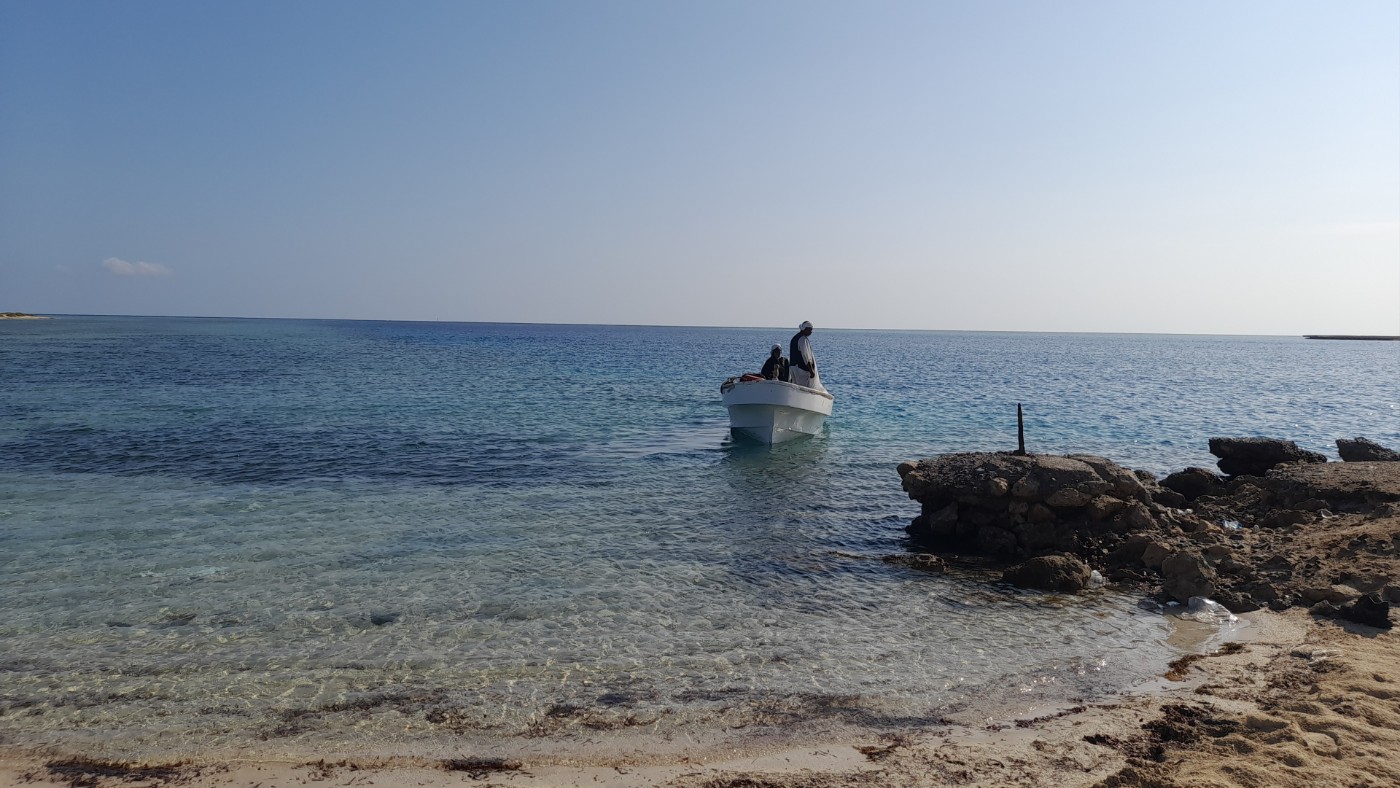Strange things are happening along the Sudanese coastline.
Foreign operatives appear to be living on small islands in the Red Sea, patrolling the waters around them and banishing the locals.
Billion-dollar deals are being made and then unmade. The whole world is coming to African shores, with dreams of power and profit occupying their thoughts. In the shadows, away from prying eyes, a game is being played.
'We were attacked by some foreigners while we were fishing near Agig port. They were white and I believe they were Russian'
- Sudanese fisherman
Fishermen in Sudan's deep south told Middle East Eye that they were attacked and expelled from their waters by armed foreigners off an island close to Agig port, south of Port Sudan near the border with Eritrea.
Eyewitnesses in these southern areas of Sudan's Red Sea coastline said they were sure there was a foreign military presence on islands inside Sudanese territorial waters.
One of the Sudanese fishermen, who asked not to be named for security reasons, told MEE that he believed the armed attackers were Russians, adding that he saw them taking samples from the land.
“We were attacked by some foreigners while we were fishing near Agig port. They were white and I believe they were Russian because I saw Russians in other parts of the region and they looked very similar,” the fisherman said, adding that they could have come from another western nation.
No-one seems to be quite sure who these people are and what they are doing in Sudan. Officials from the Tokar locality - the nearest town - did not respond to questions from MEE.
But the presence of armed foreign fighters comes as the scramble for the Red Sea coastline intensifies, with a series of international players intent on establishing a foothold in the region.
Scramble for the Red Sea
Sudan’s 750-km long Red Sea coastline is attracting widespread foreign interest, with the ambitions of a number of international players dovetailing with the country’s febrile domestic situation.
The US, Russia, UAE, Qatar, Saudi Arabia, Egypt, China, Turkey and others are all vying to control Sudan’s ports, a situation that is beset with conflicts of interest at a time of great political, economic and military insecurity.
This competition has exacerbated the conflict in Sudan between civilians and the army, with the internationally brokered framework deal signed in December - which looks to set Sudan on a two-year path to elections - meeting fierce resistance on the streets.
The battle for the Red Sea is also part of an ongoing game of thrones between Sudan’s two most powerful men, General Abdel Fattah al-Burhan and Mohamed Hamdan Dagalo, aka Hemeti.
Burhan, the country’s de facto leader, is head of the Sudanese Armed Forces (SAF), while Hemeti, his deputy, is leader of the Rapid Support Forces (RSF) militia.
Military presence
The local and international competition along Sudan’s coastline is now a military one as well as an economic one.
The US and Russia are openly competing with one another, and are putting pressure on different parts of Sudanese society as part of that rivalry.
In a recent visit to Khartoum, Russian Foreign Minister Sergei Lavrov said the previous agreement between Sudan and Russia to establish a Russian naval base on the Red Sea was going forward, explaining that it was waiting for ratification from the Sudanese legislative assembly.
“You know this agreement has been signed earlier between the two countries and is only waiting to be legalised,” Lavrov said.
A former senior military intelligence officer, speaking on condition of anonymity, said they believed the Sudanese army and RSF were standing with Russia and China, but that they were facing pressure from international players headed by the US.
“Bashir gave the Russians permission to build a military base in the Red Sea region in 2018 after his historic visit to Moscow,” the source said, referring to Omar al-Bashir, who ruled Sudan from 1989 to 2019, when he was ousted in a democratic uprising.
“US Africa Command put pressure on the army and the Sudanese transitional government, so they froze the agreement in 2021. But let me tell you: the Sudanese military mentality in choosing its allies has not changed from Bashir’s time.”
Hemeti's sea base
There is also competition within the military, as Hemeti’s RSF looks to establish a strong foothold in the region.
Satellite photography seen by MEE and published here shows that the RSF has tried to build its own military base in Dungunab and Auteri, two small ports over 150km north of Port Sudan. The plans failed because of local resistance.
A document obtained by MEE through some local leaders showed that tribal conflict erupted after the land in the two areas was given to the RSF for a military base.
According to the document, the commissioner of the Gabait locality, where the two sites are located, ordered a halt on the allocation of a piece of land in the area for the RSF.
A local leader from the Bishari tribe said that the RSF has been providing a lot of financial and developmental support to the people of the area. They added that the militia succeeded in pushing local leaders to accept an RSF base in the area.
“The RSF has not just made a lot of services in order to put the locals on their side, but even provided a lot to the leaders themselves, which partly pushed them into accepting the establishment of the base,” the Bishari leader said.
“However, the commissioner has intervened and stopped it. It is also traditionally prohibited for someone from outside the region to take over public land owned by a specific tribe unless that tribe gives them permission,” they added.
Deals with other places
In December, Sudan and the UAE struck a $6bn preliminary agreement to develop and operate Abu Amama port on the Red Sea. The deal includes the construction of an airport, a big agricultural scheme, and dozens of railways and roads to link the Nile to the Red Sea.
The deal, signed by the Sudanese government and an Emirati consortium including the Abu Dhabi Ports Group and Invictus Investment Company PLC, which is owned by the Sudanese tycoon Osama Daoud Abdellatif, has been questioned by the local community and employees of the Sudan Sea Ports Corporation, a state body.
A leading member of the Bishari tribe, the traditional owners of the area around Abu Amama area, said it wasn’t clear what the deal would bring to the local community other than simply a loss of land.









